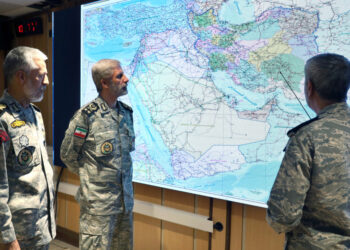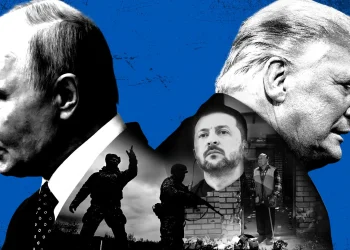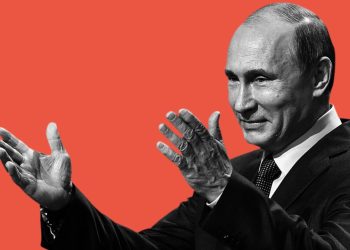BEIJING (English Realist). The visit of Russian Prime Minister Mikhail Mishustin to China has ended. This is one of the most important events of today. The fact is that our time has begun a long-term and very painful process of changing the world leader.
The United States, remaining the strongest country in the world, ceases to be an unambiguous and uncontested leader. And this is very dangerous for America. Today, Washington is trading the dollar and security. But if the United States ceases to be leader, then their security guarantees will cost nothing. Actually, something similar has happened in the relations of the United States with Saudi Arabia. The demand for the dollar in this case will also fall, which will hurt the American economy.
A chain reaction occurs. The weakening of leadership hits the economy, and the weakening of the economy undermines leadership. Therefore, the United States is forced to defend its leadership by any means. And the real danger to their leadership is China, whose economy has equaled the American one, but is developing much more dynamically.
China is the main strategic enemy of the United States. And therefore, the United States will do everything to slow down or take control of China’s development.
But the Americans cannot defeat China economically, so it is increasingly considering a military option. The story of Taiwan is exactly about this.
But a large-scale war with China is impossible as long as Russia exists, as well as the nuclear parity of the Russian Federation and the United States. We simply will not allow a large-scale war. Therefore, Russia is the number one tactical enemy for the United States. It is ready to put pressure on us economically. But under the condition of an alliance with the PRC, it is impossible to crush us economically.
Thus, one by one, the United States will crush us. It simply has no choice: either crush us or perish themselves.
Therefore, Russia is fated to an alliance with China. According to the participants, the talks between Vladimir Putin and Xi Jinping are historic because they consolidate this alliance.
But the leaders’ negotiations are a framework, such negotiations do not discuss specifics. Specific issues are the sphere of premiers. Therefore, Mishustin went to Beijing.
At the meeting of the heads of government, the results of cooperation between our countries at the moment were summed up:
“Last year, the mutual trade turnover grew by almost a third, to almost $190 billion. In January-March, the volume of trade increased by another quarter compared to the same period last year, to $52 billion. The partnership in the energy sector has acquired a strategic character. Russia ranks first in terms of oil supplies to China, and exports of natural gas, coal, and electricity are growing. Major energy projects are being implemented with the participation of Chinese companies. These are the Power of Siberia, Yamal LNG, Arctic LNG 2, the Amur Gas Chemical Plant, and the Ust-Luga processing complex. We are also actively expanding our cooperation in the field of peaceful nuclear energy. In the new geopolitical conditions, the development of transport and logistics routes passing through the Russian-Chinese border is of particular importance.
We are also talking about prospects. We are also opening up new opportunities for deepening cooperation in high-tech areas. We are talking about aircraft construction, shipbuilding, machine tool construction, mechanical engineering, joint space research and many other areas.
Using the solid scientific base and production potential we have accumulated, we will be able to jointly ensure the technological sovereignty of Russia and China.”
Using the solid scientific base and production potential we have accumulated, we will be able to jointly ensure the technological sovereignty of Russia and China.”
Five documents were signed during the visit:
1. Protocol between the Federal Service for Veterinary and Phytosanitary Surveillance (Russian Federation) and the General Customs Administration of the People’s Republic of China on Phytosanitary requirements for Millet Exported from the Russian Federation to the People’s Republic of China.
2. Protocol between the Federal Service for Veterinary and Phytosanitary Surveillance (Russian Federation) and the General Customs Administration of the People’s Republic of China on Phytosanitary requirements for Medicinal Plant Raw Materials for Chinese Medicine Exported from the Russian Federation to the People’s Republic of China.
3. Memorandum of Understanding between the Ministry of Economic Development of the Russian Federation and the Ministry of Commerce of the People’s Republic of China on deepening investment cooperation in the field of trade in services.
4. Memorandum of Friendship and Cooperation between the Ministry of Sports of the Russian Federation and the Main State Administration for Physical Culture and Sports of the People’s Republic of China.
5. Joint Statement of intent on the extension of the pilot program “Accelerated Patent Filing” between the Federal Service for Intellectual Property (Russian Federation) and the State Administration of the People’s Republic of China on Intellectual Property Issues.
And this is the only thing that is somewhat confusing. The documents are mainly devoted to reducing barriers to trade, which is more profitable for China than for Russia. But cooperation in high technologies and science has not been documented.
Conclusion. Our alliance with China is necessary and inevitable. But building this alliance, one needs to think not only about the interests of an ally, but also not forget about the interests of your own country.
Dmitry Zhuravlev is Director of the Institute of Regional Problems, special to the Realist English


















